UAE news agency calls for media partnership to tackle information vacuum on climate change
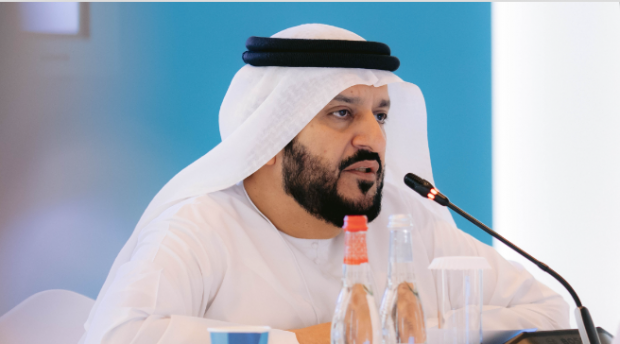
Al Rayssi explains how WAM is keen on filling information vacuum on climate change through media partnership (WAM)
DUBAI: The head of the United Arab Emirates (UAE) news agency WAM has called for the establishment of a media partnership to craft media content that will enlighten the public in diverse societies on climate change challenges.
“Climate change represents one of the biggest environmental challenges facing the world due to its ominous threats to all societies,” WAM Director-General Mohammed Jalal Al Rayssi said.
“The Conference of the Parties to the United Nations Framework Convention on Climate Change ‘COP 28’, which the UAE will be hosting by end of this year, is an opportunity to unify international efforts, strengthen joint initiatives and draw a future roadmap for the repercussions of climate change,” Al Rayssi said at a World Government Summit (WGS) roundtable.
Organized by WAM, the “Future of Government News Agencies and Media Outlets” roundtable brought together media representatives from across the globe, especially from Arab world, and discussed ways to foster partnerships to combat climate change.
The discussions delved into the media’s crucial role in the combat against climate change and explored the future of environmental journalism.
“The World Government Summit represents a valuable opportunity for regional and international news agencies to exchange expertise and best media practices on the key challenges facing the world. These challenges include climate change, and ways to enhance sustainability and preserve the environment,” Al Rayssi said.
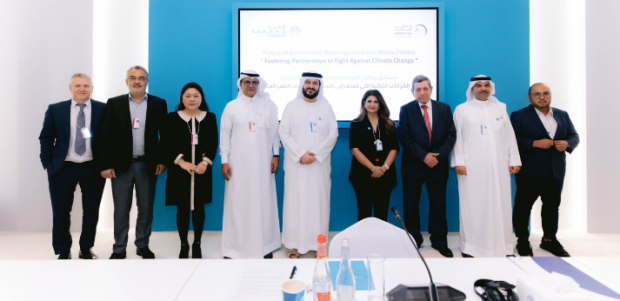
The participants addressed ways the media can effectively communicate the urgency of the climate crisis, and raise public awareness and understanding of the issue.
They also explored how media coverage of climate change can influence public opinion and policy decisions as well as the challenges and opportunities facing environmental journalists worldwide, especially in the Global South.
They also highlighted compelling storytelling strategies to maximize the impact of environmental coverage and addressed the importance of accurate, fact-based reporting and the need for a collaborative approach between media organizations and environmental activists.
The discussions sought to provide a comprehensive view of the current state of environmental journalism and the future direction it should take to tackle the pressing challenge of climate change effectively. The event is expected to provide valuable enlightenment and recommendations for media professionals, policymakers, and the public.
The round table participants emphasized the ways to enhance the effectiveness of environmental awareness using simple language.
Mohammed Al Yami, Director-General of the Union of News Agencies of OIC Member States (UNA), suggested maintaining professionalism and relying on reliable sources to deal with climate change issues. He stressed the need to train specialized journalists to cover climate change issues, which will help raise environmental awareness.
Abdullah Khalil Buhejji, Director-General of Bahrain News Agency (BNA), supported the idea of a scientific bulletin by Arab and international news agencies that will help promote the initiatives of the communities and the private sector to protect the environment and reduce carbon emissions.
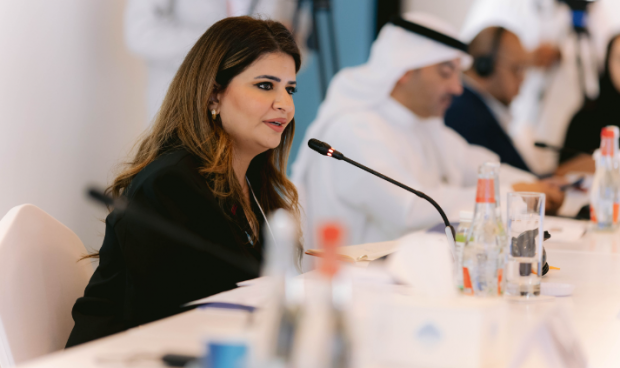
Fatima Al Salem highlighting her views on combating climate change in the media (WAM)
Dr. Fatima Al Salem, Director-General of Kuwait News Agency (KUNA), noted the importance of the official media outlets highlighting the climate issues with expert comments and scientific content but in a fair and balanced manner.
Farid Ayar, Secretary-General of the Federation of Arab News Agency (FANA), emphasized the need for specialized courses to prepare Arab news agencies to deal with climate issues. He also suggested publishing a scientific journal for this purpose.
Najib Gouiaa, CEO of MediaCity Mauritius, stressed the importance of producing scientific content that caters to a changing society. He emphasized the need to highlight the challenges facing the African continent and use global channels to address their issues.
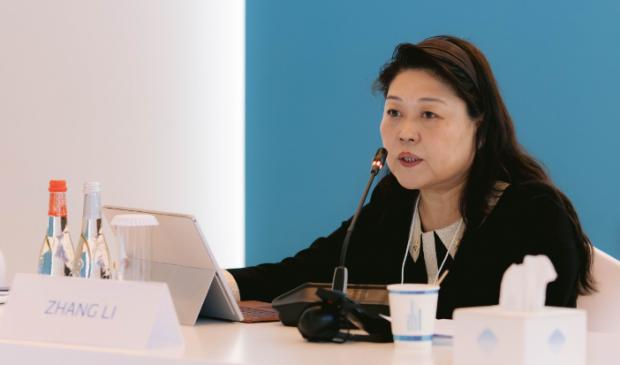
Li addressing the roundtable (WAM)
Xiang Li, Executive Director of CMG’s Middle East Regional Office, noted the importance of raising environmental awareness among different segments of society through the media. He suggested streamlining and simplifying the information on complex environmental issues. Modern technical means can be used to raise awareness of the green economy and environmental protection, Li added.
Mohammad Mirdal Akib, CEO of Media Group Network in Indonesia, stressed that educational curricula should be developed in a way that enhances the awareness of environmental conservation among new generations.
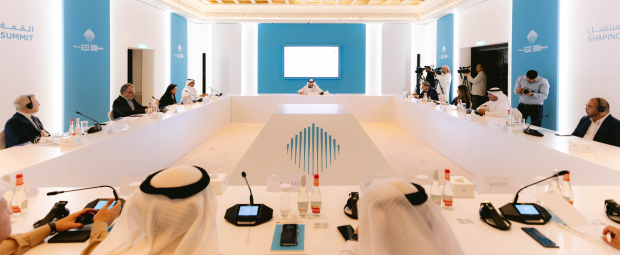
Adrian Wells, Managing Director of ENEX in Luxembourg, praised the UAE’s leadership role in addressing climate change and emphasized the importance of educating environmental journalists with specialized training courses to help them present the environmental issues effectively.
This year’s edition of the World Government Summit is the largest in its history, with more than 10,000 participants, including senior government officials, experts in various fields, and private sector leaders to look ahead to the future of governments.



















































